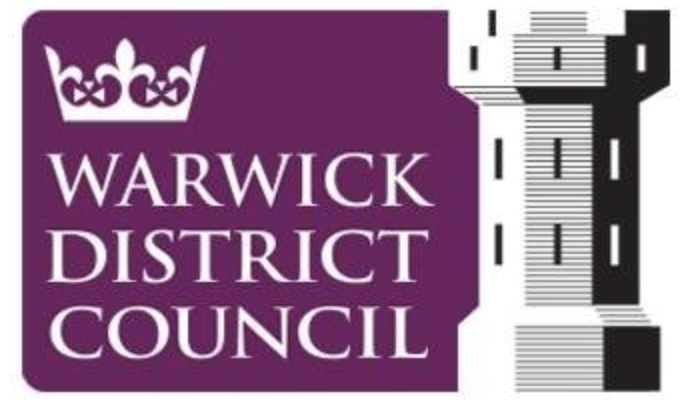
As a co-signatory of the Local Digital Declaration, one our broader commitments is to:
- Support our workforce to share ideas and engage in communities of practice by providing the space and time for this to happen.
A community of practice is for people who share common job roles, responsibilities, or remits.
Why did we want a project management community of practice?
With my Digital Team expanding to include a dedicated Project Manager and a Project Management Degree Apprentice, it seemed like a good time to link them up with other colleagues managing projects. Finding these colleagues proved a bit more challenging!
What began as a low key idea morphed into the desire to establish a dedicated community of practice.
Early stages
- I gathered around 20 colleagues with project or programme management in their job titles and asked them whether they would like to belong to a community of practice and how it might make their lives easier.
- I got a mixed response and had a lot of conversations to tease out their thoughts. While many staff were very keen, a few were worried that decisions made collectively might constrain them.
- I tapped into some external networks to ask if other local authorities had explored this idea; a few had.
- Our Deputy Chief Executive was very supportive and offered to sponsor a project management community of practice if we got it off the ground.
Developing the idea
Following my research, four broad ideas were shared with our senior leadership team in late 2022:
- Create a project management community of practice
- Convene a lessons learned workshop to capture the main lessons from a wide range of projects and suggest possible improvements to prevent similar problems arising
- Develop some project management administrative support
- Develop an introduction to project management awareness package
The proposal was unanimously supported, and our Deputy Chief Executive agreed to be our sponsor.
Launching our project management community of practice (PM CoP)
- We’re using a private Microsoft Teams team and channels to encourage conversations and keep everything in one place
- I delivered some Lunch & Learn training sessions to familiarise members on how to use the Microsoft Teams platform.
- We convened a series of PM CoP sessions so members could get to know each other, share what they wanted from the PM CoP and discuss items to include in the awareness training package
- Twelve members attended our Lessons Learned workshop in early 2023 which drew out lots of challenges, impacts and potential recommendations (more on this later)
- We have 30 minute weekly drop in sessions, on a rolling Tuesday, Wednesday, Thursday basis to keep members in touch.
- These sessions have been unstructured but will soon become more focussed.
What has the PM CoP achieved so far?
We have grown to 47 members with a wide range of experience and needs:
- brand new through to long established staff
- some are fresh into project management while others have lots of experience
- some, but by no means all, have formal qualifications
- some are dedicated project or programme managers, while for others it’s just a part of their role
- we have several project management apprentices
Having a safe space to talk about our projects, challenges, successes, and pain points has been invaluable. Connections have been made between members that have opened opportunities and increased the impact or awareness of our projects. Members feel more connected to their colleagues and to the organisation, especially now most of us work from home.
Document templates and approaches have been shared and improved.
Our Lessons Learned workshop and subsequent conversations culminated in a presentation to our senior leadership team in June 2023. The presentation suggested several recommendations to resolve the repeating challenges that we face when delivering projects.
All our recommendations were supported in full so now we just have to make them happen!
How can we improve?
We need to make it easier for potential members to find us.
- Identifying some members has been easy as they are dedicated project or programme managers. Many other staff, me included, are part-time project managers and have a wide range of job titles.
- I endlessly promote the PM CoP at different meetings and rely on existing members to invite colleagues.
Ensure that what we’re doing is relevant and helpful to members.
- Some members are too busy to engage which means we miss out on their experience and insights
- Finding ways to support different member’s needs. For example. highly experienced, long-established project/programme managers will have different needs to project management apprentices.
Make progress with tackling the Lessons Learned recommendations agreed by our senior leadership team. Some of the recommendations will be wholly owned by the PM CoP, some will belong to our senior leadership team while others require a wider cultural shift.
Use our time wisely. We are planning to use our 30 minute drop-in sessions to focus on improving specific document templates and processes.
Meet up in person. Many members joined the council during the pandemic and may have only met via a virtual platform. Meeting up in person would be a different experience.
Continue to encourage members to engage with the dedicated Microsoft Teams platform. As an organisation that has traditionally used email communication, it’s a very different way of working.
I think we may benefit from having a steering group, although this could cause enthusiasm to wane. Having started the PM CoP, I am the lead facilitator and I’ve noticed members are often hesitant to press ahead with their ideas.
Just keep using our collective voice to raise awareness, to network and create better projects.
Learn from other communities of practice. If your local authority has a PM CoP then do get in touch.
Some useful resources
Communities of practice are well established in Central Government circles:
- Community development handbook – GOV.UK (www.gov.uk)
- Community development framework – GOV.UK (www.gov.uk)
- a blog by a person reflecting on their experience in setting up / maintaining a CoP
- a blog on how CoPs can benefit both individual staff and the organisation
If you work in local government as a digital practitioner, I thoroughly recommend joining the LocalGov Digital network.
If you work in local government as an application support / DevOps manager, join the thriving Local Government Application Managers’ Network.

Dear localgov.blog administrator, Thanks for the great post!
Thank you Krystle!
Hi localgov.blog administrator, Your posts are always well-supported by research and data.
Thank you Eloisa. I enjoy researching and writing these blogs.
Hi localgov.blog owner, Thanks for the valuable information!
Hey, that’s great Tyler!
Dear localgov.blog webmaster, Thanks for the well-organized and comprehensive post!
Dear localgov.blog admin, Your posts are always well organized and easy to understand.